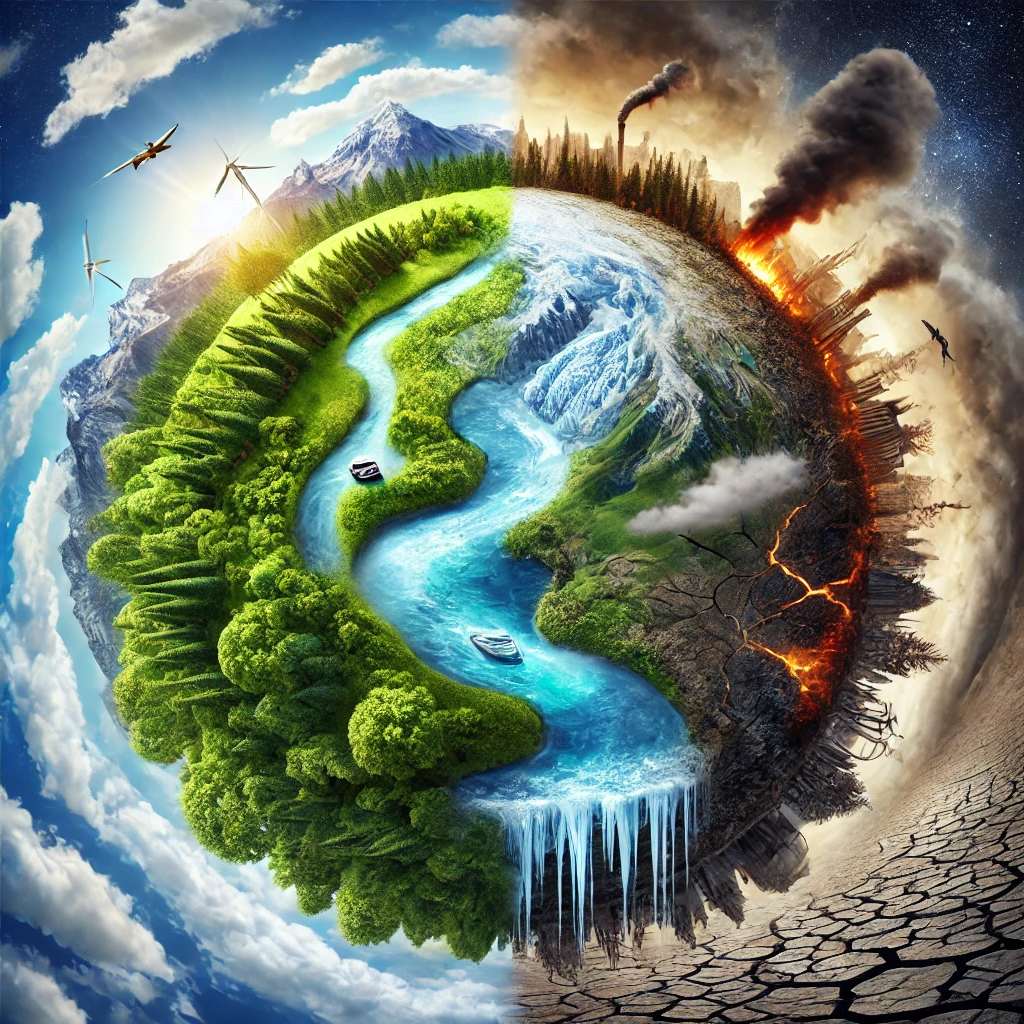
Global warming is one of the most pressing environmental challenges facing the modern world. It refers to the gradual increase in Earth’s average surface temperature caused by the buildup of greenhouse gases in the atmosphere. This phenomenon, largely attributed to human activities, has far-reaching consequences for ecosystems, weather patterns, and human societies. Understanding its causes, effects, and potential solutions is crucial to mitigating its impact.
Causes of Global Warming
The primary cause of global warming is the excessive release of greenhouse gases such as carbon dioxide (CO₂), methane (CH₄), and nitrous oxide (N₂O). These gases trap heat in the atmosphere, creating a greenhouse effect that warms the planet. The burning of fossil fuels—coal, oil, and natural gas—is the leading contributor to this problem, powering industries, vehicles, and electricity generation while releasing massive amounts of CO₂.
Deforestation also plays a significant role. Forests act as carbon sinks, absorbing CO₂ from the atmosphere. However, large-scale deforestation for agriculture, urbanization, and logging reduces this capacity, exacerbating the problem. Agricultural practices, especially livestock farming, release methane, while the use of chemical fertilizers contributes to nitrous oxide emissions.
Effects of Global Warming
The consequences of global warming are already evident in many parts of the world. Rising temperatures are causing glaciers and polar ice caps to melt, leading to a rise in sea levels. This threatens coastal cities and low-lying regions with flooding, displacing millions of people and damaging infrastructure. Extreme weather events, such as hurricanes, droughts, and wildfires, are becoming more frequent and severe due to changing climate patterns.
Ecosystems and biodiversity are also under threat. Many species are struggling to adapt to rapidly changing habitats, leading to declines in populations and even extinctions. Coral reefs, vital for marine biodiversity, are bleaching and dying due to warming oceans and increased acidity.
Human communities face significant challenges as well. Agriculture is heavily impacted, with crop yields decreasing in many areas due to unpredictable weather and prolonged droughts. Water scarcity is becoming more common, particularly in arid regions, and public health is at risk from heatwaves, air pollution, and the spread of diseases like malaria and dengue.
Solutions and Mitigation Strategies
Tackling global warming requires immediate and sustained action. Reducing greenhouse gas emissions is critical, and this can be achieved by transitioning to renewable energy sources such as solar, wind, and hydropower. Governments and businesses must invest in energy-efficient technologies and sustainable infrastructure. Reforestation and afforestation efforts are essential to restoring the planet’s ability to absorb carbon dioxide.
On an international level, agreements like the Paris Climate Accord aim to unite countries in the fight against global warming. By setting emission reduction targets and encouraging collaboration, such initiatives play a pivotal role in addressing this global crisis.
Individuals also have a role to play. Adopting sustainable lifestyles, reducing waste, and supporting eco-friendly practices can contribute significantly. Public awareness campaigns and education can inspire collective action, emphasizing the urgency of protecting the planet.
Conclusion
Global warming is a multifaceted challenge that demands collective responsibility. While the impacts are daunting, solutions exist, and progress is possible with coordinated efforts. By prioritizing sustainability and embracing innovation, humanity can mitigate the effects of global warming and ensure a safer, more resilient future for generations to come.



